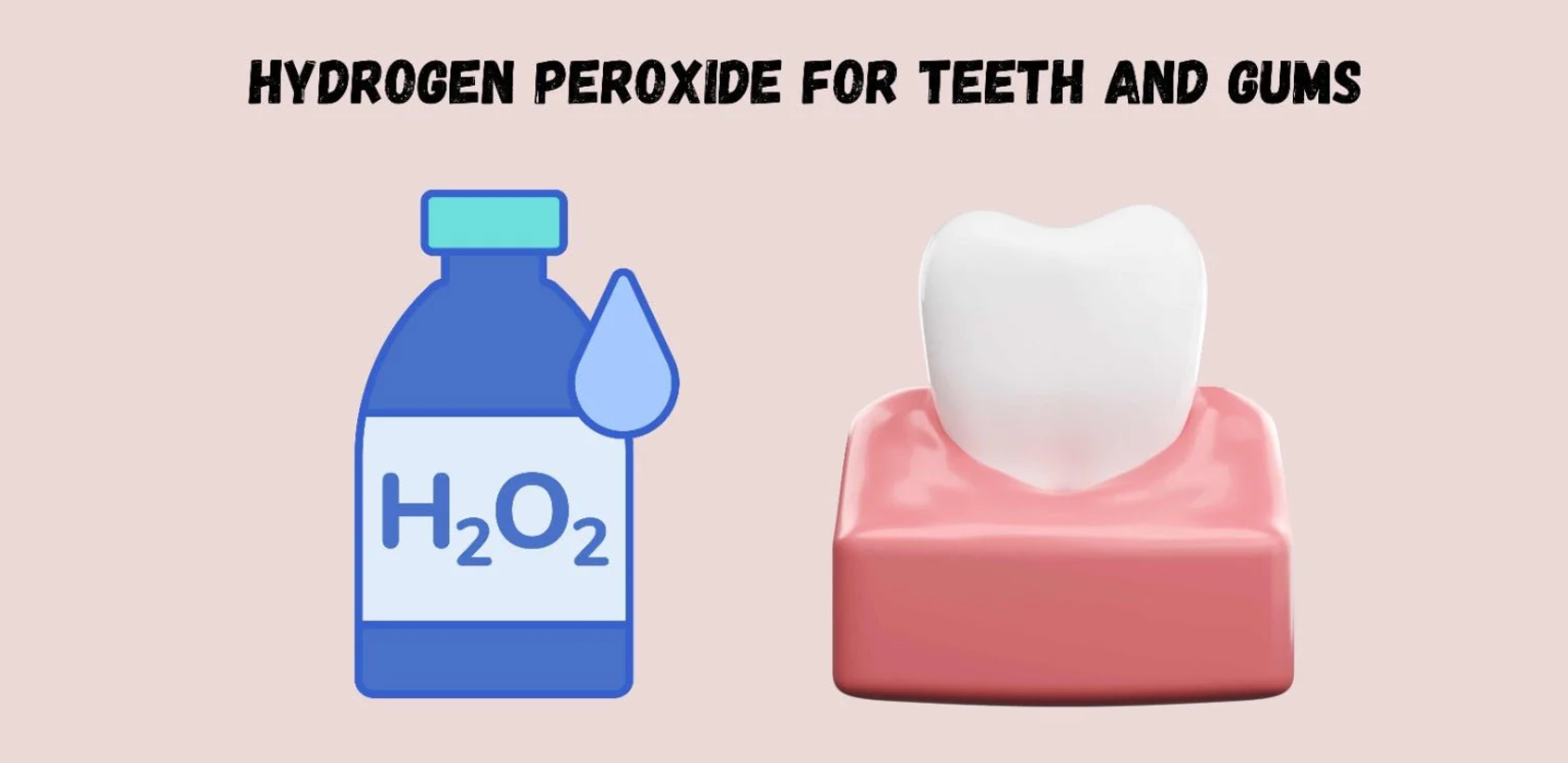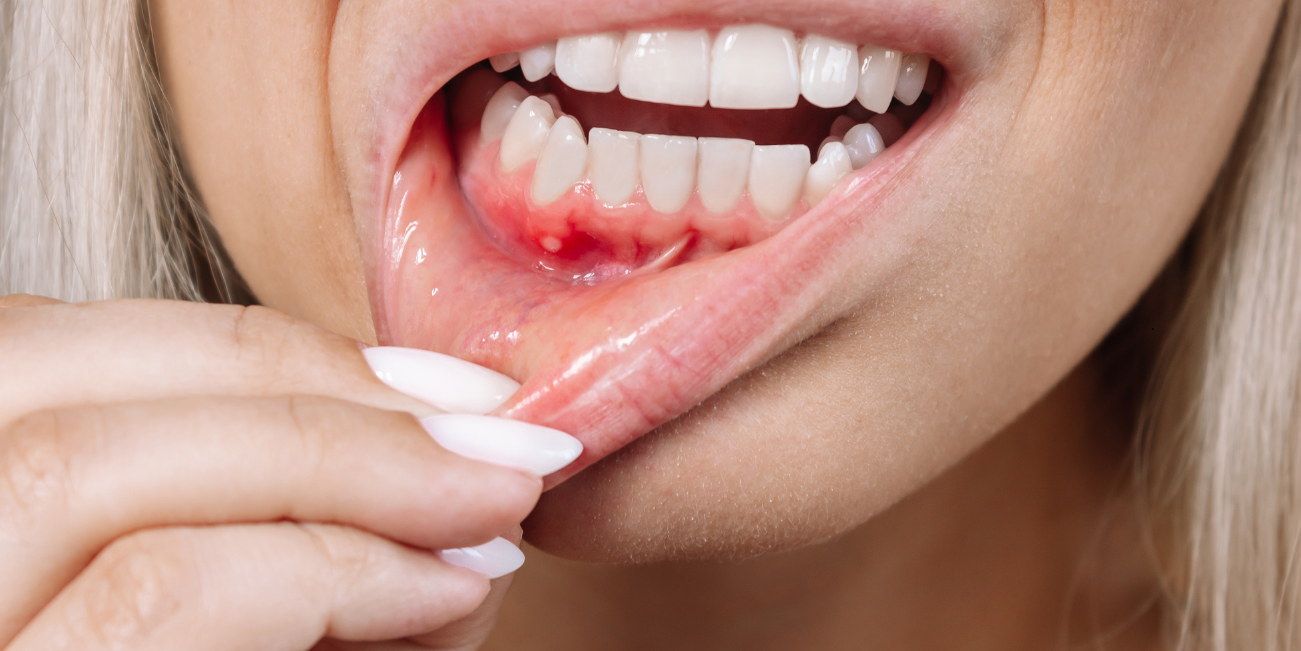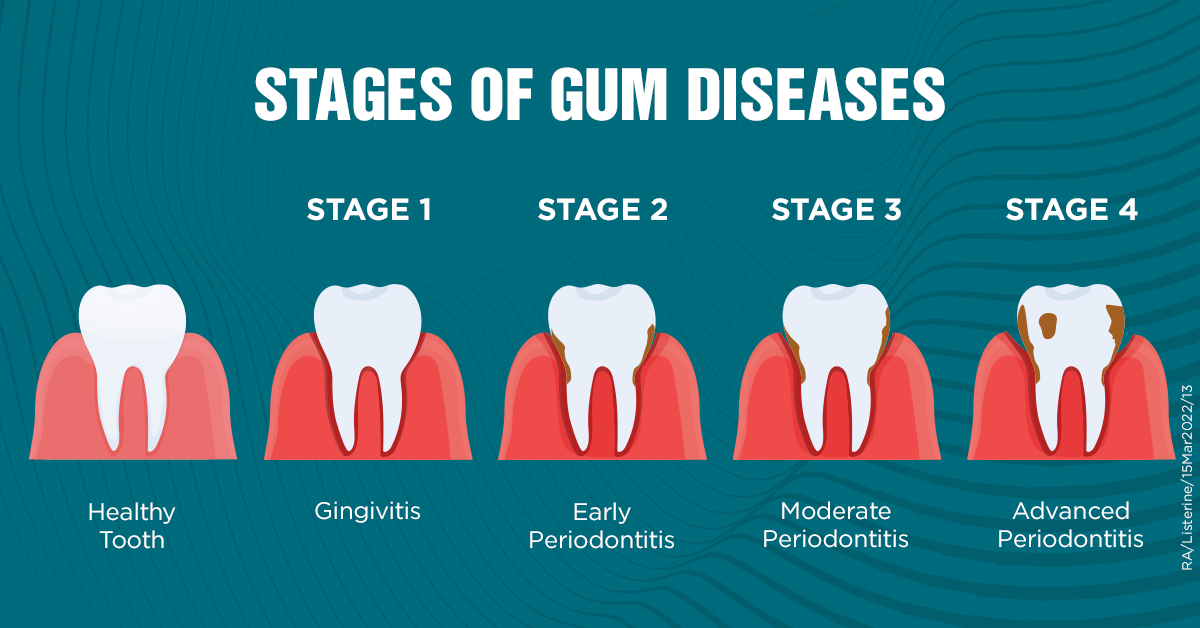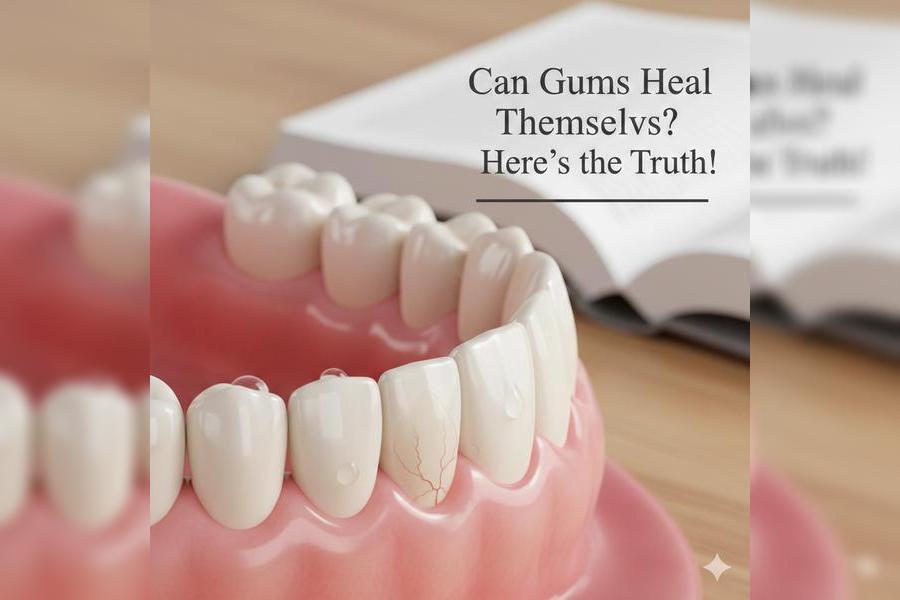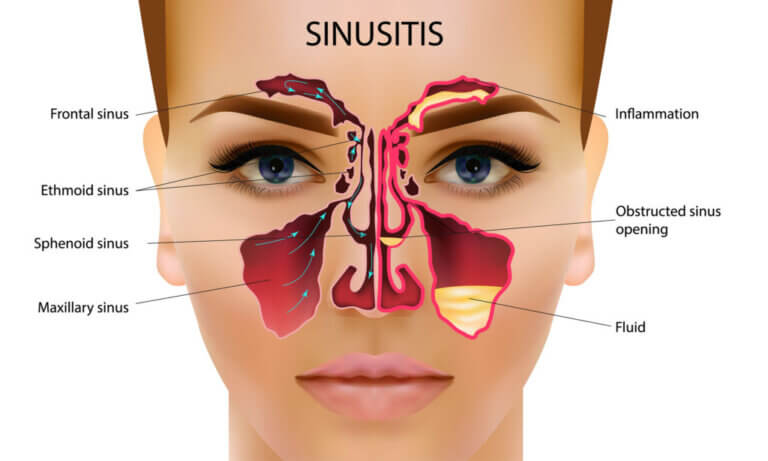Swollen gums aren’t subtle. They throb when you brush, they sting when you sip coffee, and sometimes they even make eating feel like a chore. That puffiness along the gum line is your body waving a red flag, telling you something isn’t right.
And here’s the part most people wonder at that point: Can I fix this without rushing to the dentist right away? That’s usually when the search begins for home remedies. Salt water rinses, herbal teas, oil pulling - you’ve probably seen them all. But one name always pops up at the top: hydrogen peroxide.
And the big question is: does hydrogen peroxide help swollen gums? Is it merely a hoax that people keep reusing on the internet or does it actually work? Today we are going to strip the layers off, science, safety, risks, and real-life use to know precisely where peroxide belongs in your oral health regimen and where it does not.
More Than an Irritation, Swollen Gums!
The thing with swollen gums is that they are not a superficial problem that can be solved in the nearest future with a rinse or another swipe of your toothbrush. That puffiness, tenderness, and redness? It’s your body’s way of sending up a flare, signaling that something below the surface isn’t right.
Too many people brush it off because it doesn’t always hurt at first. But ignoring gum inflammation is like ignoring a check engine light - you can keep driving, sure, but eventually, it’s going to cost you.
Most cases of swollen gums boil down to one major troublemaker: gingivitis. This is the earliest stage of gum disease, and it’s sneaky. It shows up with mild swelling, maybe a little bleeding when you floss, and sometimes a bit of tenderness. Nothing too dramatic, yet.
But that’s exactly the trap. Gingivitis is the quiet alarm bell, and if you ignore it, you’re setting yourself up for the bigger, uglier monster: periodontitis.
Think of it this way: gingivitis is the smoke alarm, and periodontitis is the full-blown fire. And you don’t want a fire in your mouth. The American Dental Association has the receipts: nearly half of adults over 30 already have some form of gum disease. That’s not a niche problem - that’s practically everyone you know.
Why Do Gums Swell in the First Place?
Your gums are the foundation of your teeth. Just like a house, if the foundation is weak, cracks start to appear everywhere else. Bacterial plaque is usually the head villain here. It sticks to your teeth, irritates your gums, and if you don’t clean it away properly, it hardens into tartar. Once tartar sets in, you can’t remove it at home; it takes a professional cleaning. That’s when your gums really start to throw tantrums.
But plaque isn’t the only factor. Plenty of other things can push your gums over the edge:
-
Poor oral hygiene – Skipping floss or rushing your brushing routine is basically an open invitation for bacteria to take over.
-
Hormonal changes – Pregnancy, menopause, and even monthly cycles can mess with your gums, making them more sensitive and reactive.
-
Dry mouth from medications – Some prescriptions reduce saliva flow, and saliva is your mouth’s natural defense system. Less saliva means more room for bacteria to thrive.
-
Vitamin deficiencies – Lacking enough vitamin C, for instance, weakens your gum tissue and slows healing.
-
Smoking and tobacco use – Nothing good comes from this. Tobacco dries out tissues, lowers immunity, and makes it harder for your gums to fight infection.
-
Stress – Believe it or not, stress isn’t just in your head. It impacts your immune system, which means your gums can’t fight bacteria as effectively.
The Problem Most People Miss
Swollen gums don’t always scream with pain at the beginning. In fact, they can swell quietly and still look “fine” to someone who doesn’t know the warning signs. Maybe you notice a little blood when you spit after brushing. Maybe your gums look a bit puffier than usual. But because it doesn’t feel like an emergency, people often shrug it off.
That’s the danger. Gum disease works slowly and quietly, but it doesn’t stop on its own. By the time it hurts, the damage is already well underway. Early swelling is your window of opportunity - the time when you can step in, make a few changes, and actually reverse the problem before it snowballs into something irreversible.
So, swollen gums? Definitely more than just an annoyance. They’re a warning. And if you listen early, you can fix the issue before it becomes a full-blown disaster for your oral health.
Proper Application Methods: How to Use Hydrogen Peroxide Safely

Since you’re reading this to solve a problem, here’s how to use hydrogen peroxide smartly so that hydrogen peroxide works in your favor, not against you.
- Dilution: If you have a 3% solution (common over-the-counter), mix with equal parts water (1:1) or even 1 part H₂O₂ to 2-3 parts water (depending on sensitivity).
- Rinse time: Swish gently for about 30 seconds. Don’t gargle too aggressively. Spit it out - don’t swallow.
- Frequency: Start with 1–2 times per week. If your gums respond (less swelling, no burning), maybe up to once per day. But avoid constant daily use without breaks.
- Follow-up rinse: After using peroxide, rinse with plain water to wash residues away.
-
Watch for signs of irritation: If gums feel burning, more red, mucosa is peeling, or you feel pain, stop usage.
- Professional consultation: In case swelling continues over a week, or there is bleeding, pus, bad breath, loose teeth, consult a dentist.
A Comparative Analysis Between Treatment Options: What is the Best?
|
Treatment Method |
Effectiveness |
Safety Profile |
Cost |
Convenience |
|
Hydrogen Peroxide Rinse |
Moderate |
Requires caution |
Very Low |
High |
|
Salt Water Rinse |
Mild-Moderate |
Very Safe |
Very Low |
High |
|
Professional Cleaning |
High |
Very Safe |
Moderate-High |
Moderate |
|
Antibacterial Mouthwash |
Moderate-High |
Generally Safe |
Low-Moderate |
High |
|
Natural Oil Solutions |
Moderate-High |
Very Safe |
Moderate |
High |
Long-Term Effects And Considerations of Hydrogen Peroxide
Here’s the thing: short-term, hydrogen peroxide can feel like a lifesaver. Your gums calm down, bleeding eases up, and you think, finally - something that works. But what happens when you lean on it week after week, month after month? That’s where the story shifts.
The Enamel Problem Nobody Tells You About
Unlike your gums, which can bounce back if treated properly, tooth enamel never regenerates. Once it’s gone, it’s gone. Frequent peroxide rinsing - especially if not carefully diluted, can wear down enamel over time. Sure, you may win a battle against swollen gums, but you could be opening the door to sensitivity, cavities, and permanent damage.
The Microbiome Puzzle
Your mouth isn’t just home to “bad bacteria.” It’s an entire ecosystem, full of microbes that actually protect you. Hydrogen peroxide doesn’t care who it wipes out - it’s an equal-opportunity killer. Knock down too many of the good guys, and you can end up with oral thrush, irritation, or an even bigger imbalance that makes gum issues circle back harder.
Looking Beyond Band-Aids
At some point, most people realize peroxide is just that: a band-aid. It can help at the moment, but it doesn’t restore balance or nourish your gums. What you really want is something that works with your body instead of against it. A long-term fix that soothes, heals, and builds strength instead of just putting out spot-fires.
A Better Way Forward: Nature as Your Ally
This is where things get interesting. If your gums are sore, inflamed, or bleeding, you don’t need another harsh chemical rinse. You need a solution that’s gentle but powerful - something that calms swelling while supporting natural healing.
That’s why we always bring up The Goodbye Company Gum Disease Oral Solution. It flips the script:
-
Instead of stripping your mouth raw, it feeds your gums with Omega-3 and Omega-9 oils. These fatty acids are inflammation fighters that help rebuild tissue.
-
It layers in neem essential oil, a botanical powerhouse famous for its antibacterial and anti-inflammatory action.
-
And it rounds things out with clove oil, a time-tested natural remedy for oral pain, thanks to its active compound, eugenol.
This blend doesn’t just fight bacteria - it creates an environment where your gums can actually heal and stay healthy.
From Harsh to Healing: Why This Matters
Think about it: peroxide says, let me kill everything in sight. The Goodbye Company solution says, let me calm, nourish, and protect.
-
Short-term peroxide relief: stops bleeding, but risks enamel wear and microbiome disruption.
-
Long-term natural care: supports healing, fights bacteria selectively, and helps your gums regenerate instead of weaken.
It’s like the difference between crash-dieting and building a lifestyle you can actually sustain.
Your Path to a Healthier Smile
Picture this: instead of dreading the sting of peroxide, you swish two droppers of a soothing oil blend for just a few minutes each day. No burning, no raw tissues—just steady, natural support. Over time, your gums stop being a problem area and start becoming a foundation of oral health.
That’s the difference between a quick fix and a true solution. With neem, clove, and Omega oils doing the heavy lifting, you’re not just reducing swelling—you’re breaking free from the cycle of irritation and relapse.
So, back to the original question: does hydrogen peroxide help swollen gums? Yes, for now. But the smarter question is: is it the right strategy for long-term gum health? And for me, the answer is no. The better path is to shift away from harsh chemicals and lean into what nature (and smart formulation) can do for you.
FAQs - Does Hydrogen Peroxide Help Swollen Gums
Is it safe to use hydrogen peroxide for gums?
When diluted properly and used sparingly, yes, it’s generally considered safe. However, the key here is properly diluted. The standard 3% hydrogen peroxide you buy in the store is too strong to use straight. It must be mixed with an equal part of water to create a safer, 1.5% solution. Using it undiluted is a surefire way to cause chemical burns and further tissue damage.
How often can I use hydrogen peroxide on my gums?
This is crucial. This is not a daily routine. Dentists generally recommend using a hydrogen peroxide rinse no more than two to three times per week. Overuse can disrupt the natural, healthy bacterial balance in your mouth, which can lead to other issues down the line. Think of it as an occasional treatment, not a staple of your oral hygiene routine.
What are the side effects of using hydrogen peroxide on gums?
The potential for tissue irritation is the biggest concern. You might notice a burning or stinging sensation. It can also cause a temporary whitening or bleaching of the gums, which is an alarming sign of tissue damage. Furthermore, the search for a simple bleeding gums remedy using hydrogen peroxide can inadvertently lead to increased tooth sensitivity. The hydrogen peroxide can permeate tiny cracks in your enamel, causing pain when you consume hot or cold foods.
What is the best alternative for swollen gums?
This is the million-dollar question. While hydrogen peroxide offers a fleeting sense of victory, the best solutions are those that are both effective and gentle, working with your body’s natural healing processes, not against them.
Outlook
In the end, the choice is yours. You can continue down the path of quick, temporary, and potentially damaging fixes like hydrogen peroxide. You might find a moment of relief, but the underlying problem will remain, and you’ll find yourself back in that same frustrating cycle of pain and discomfort. The question “Does hydrogen peroxide help swollen gums?” will continue to be a source of confusion and frustration.
Or you can choose a new path. A path that embraces the power of nature to heal and restore. If you currently suffer from poor oral health, such as bleeding gums, tooth pain, and sensitivity to hot or cold temperatures, introduce The Goodbye Company Gum Disease oral solution into your daily oral care routine. It is the best natural gum disease cure because it works with your body, not against it, providing a holistic and lasting solution.
It's the difference between fighting a fire and rebuilding your house. Hydrogen peroxide might put out a small flame, but this solution helps you build a fire-resistant home. Make the choice to end the cycle of pain and start your journey towards a healthier, happier smile


